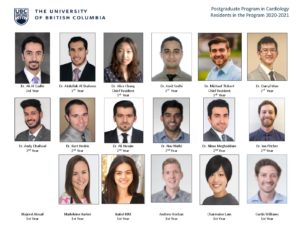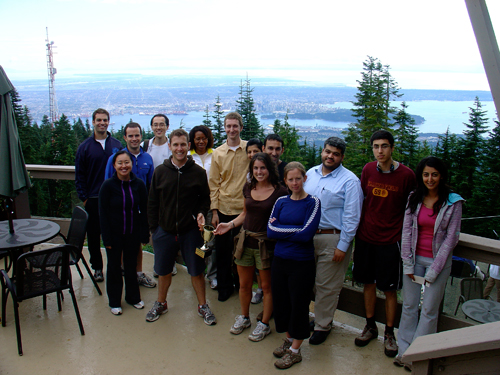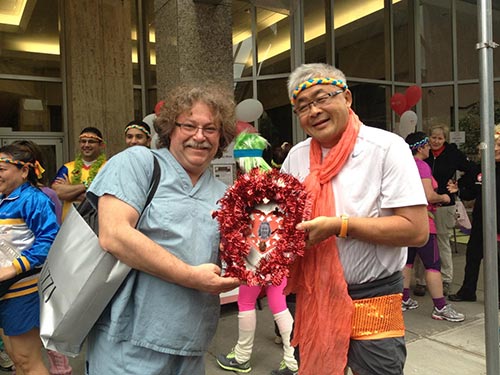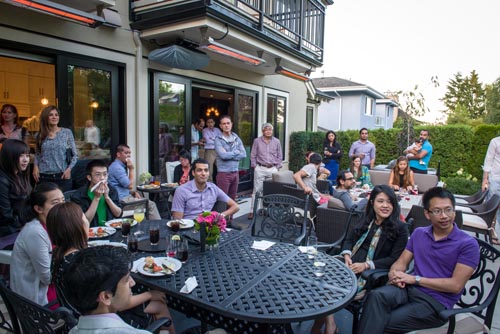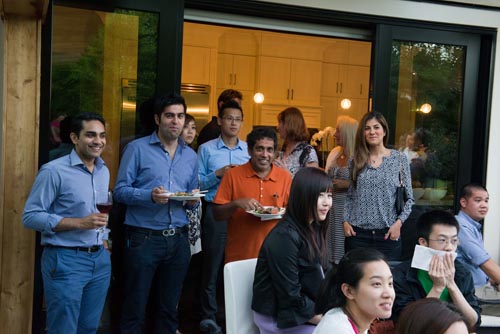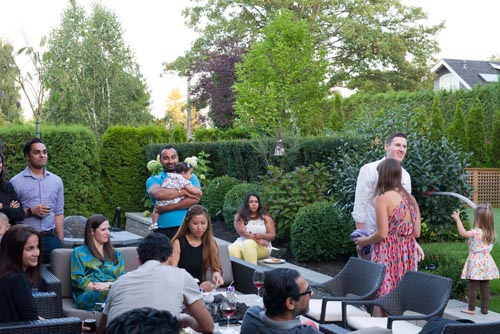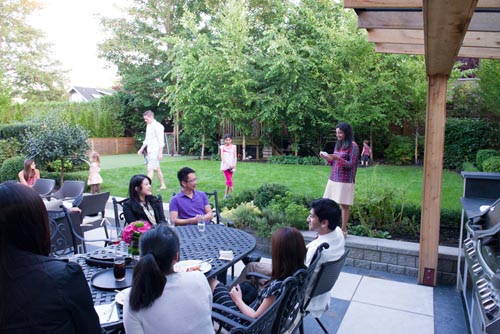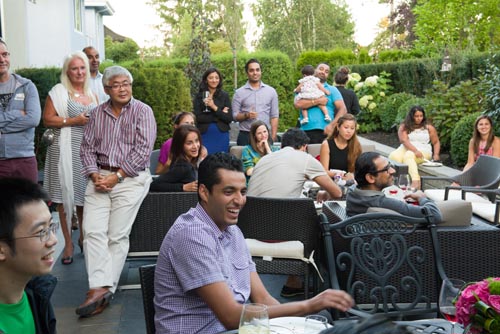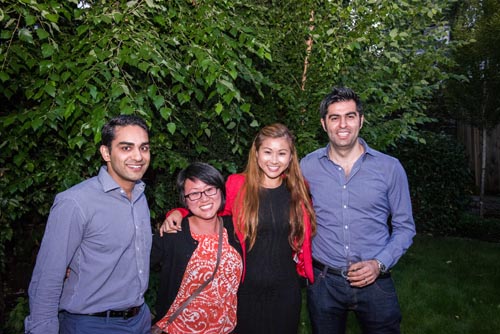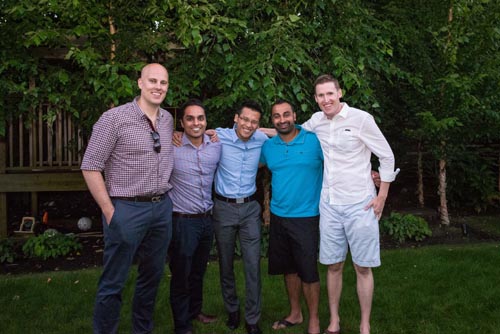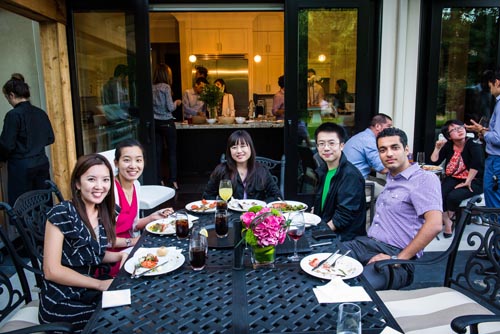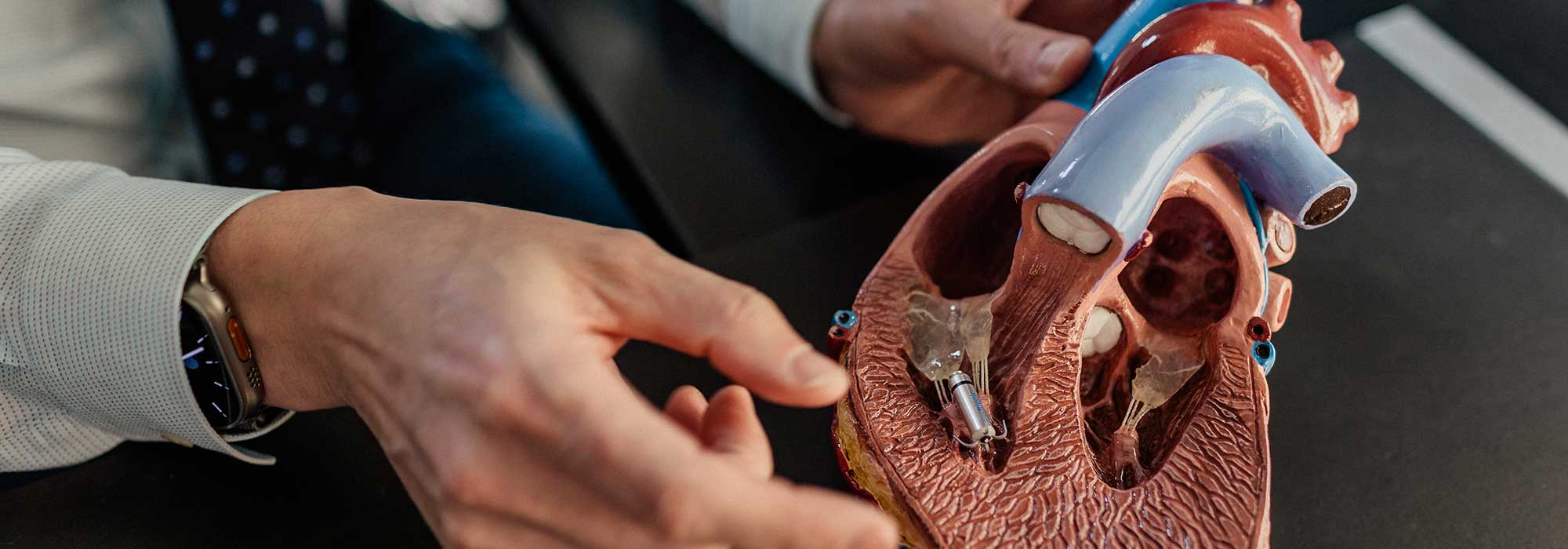
CARDIOLOGY RESIDENCY PROGRAM
The Cardiology Program at UBC trains 16-18 residents annually. A combination of enthusiastic residents, a committed program director, and dedicated teaching staff have resulted in an enviable clinical teaching program. UBC’s Cardiology Training Program is fully accredited by the Royal College of Canada.
Monday and Tuesday morning sessions consist of physical exam teaching, graphics (Holters and stress test) teaching, ECG rounds, graphics OSCEs, journal clubs, among many other topics. Academic half-day is protected teaching time on Thursday afternoons. Topics follow the RCPSC areas of expertise and CanMEDS teaching. Distinguished speakers and various other invited speakers also visit half day. Biannual simulation sessions for procedural and team skills, ethics and communication sessions, and research statistics are also taught. Evening events provide an opportunity to socialize with colleagues in a multitude of top-notch Vancouver establishments. Residents are invited to UBC journal clubs, meeting updates (ACC, AHA, ESC), and Law and medicine sessions. At both St. Paul’s Hospital (SPH) and Vancouver General Hospital (VGH), the Cardiac Intensive Care Unit (CICU) accepts or co-manages ventilated and balloon pump patients, offering residents the opportunity to gain experience in caring for the most critically ill patients. Ventricular Assist Devices and Cardiac Transplant are at SPH, and allow one to gain familiarity with novel bridges to cardiac transplantation. Expertise in peripheral, renal and carotid interventions at VGH offers cardiology residents exposure in this expanding area. SPH has become a world leader in novel techniques in percutaneous aortic valves, in addition to ASD/VSD/PDA and atrial appendage closure devices. The cath labs at both SPH and VGH are certainly exciting places to be nowadays.
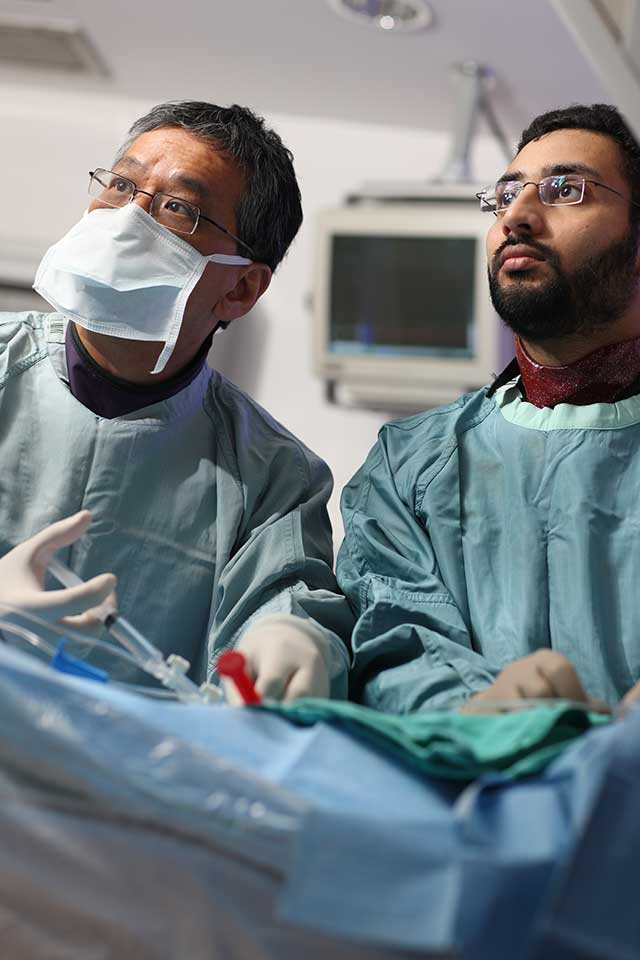
As a large teaching centre, UBC’s teaching hospitals include SPH, VGH, Royal Jubilee Hospital (Victoria), Surrey Memorial Hospital, and Royal Columbian Hospital. In addition to high volumes of patients with common cardiac conditions, these centres also provide teaching in quaternary care. For example, the electrophysiology department offers residents exposure in the most advanced arrhythmia treatments with atrial and ventricular ablation procedures, including cryoablation, CRT and AICDs. Innovative techniques in cardiac surgery offer an exciting training environment for residents with the recent recruitment of surgeons trained in robotic surgery (and a brand new robot on the way), minimally invasive valve surgery, off-pump bypass, and lead extraction.
In addition to the numerous general cardiology clinics and common tertiary care clinics such as the Heart Function Clinic, Atrial Fibrillation Clinics, STAT Cardiology clinics, multidisciplinary clinics are also available for cardiology residents in Cardio-oncology, Sarcoid, HCM, congenital heart disease, sports cardiology, pulmonary hypertension, women and heart disease, SCAD, and many more.
Research has become a strong focus in the department. The program offers up to seven months (3 mandatory, 4 elective) of dedicated research time. UBC is a leading centre for innovation in interventional cardiology, basic and translational research. There are many research mentors with projects available for cardiology residents. Each resident is assigned a research mentor to ensure they are paired with an appropriate supervisor and undertake high quality research endeavors. Funding is provided for residents to travel to and attend both the Canadian Cardiology Congress and an international conference every year.
Resident morale is high and the well-rounded group of residents (and many staff) adopts a policy of “work hard, play hard”. The program encourages resident-led initiatives and allows the program to be our own. We are always looking for more residents who have a contribution to make and want to be part of a group of talented, hard-working, fun-loving residents!
We sincerely thank our incredible outgoing Program Director, Dr. Parvathy Nair, for 10 dedicated years of curriculum development, intellectual and career guidance, and emotional support through the most challenging but most memorable stage of a budding cardiologist’s life. As she moves on towards other endeavours, we welcome our new Program Director, Dr. Graham Wong and Associate Program Director, Dr. Annie Chou. Both are excited to enrich and carry on the success of the UBC Adult Cardiology Program.
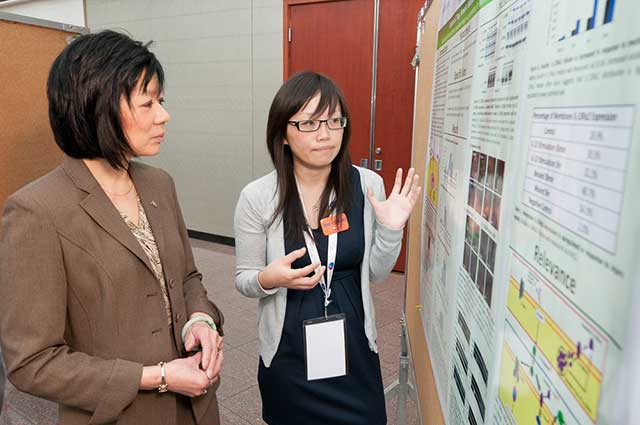
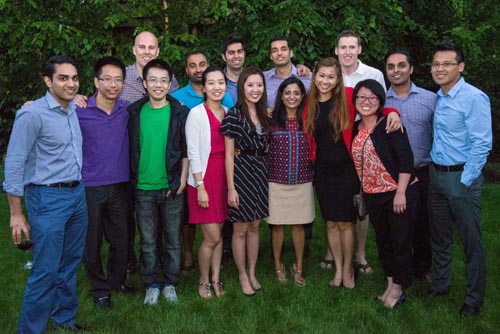

ACADEMIC OVERVIEW
Academic life in Vancouver for the Cardiology Fellows
Academic Requirements:
A minimum of seventeen (17) blocks of clinical residency:
4 blocks of coronary care unit (CCU)
1 block of Cardiac Rehabilitation
1 block of CSICU
2 blocks of Advanced Heart Failure and Cardiac Transplantation
4 blocks of Consults: Allocated according curriculum (traditional or CBME)
3 blocks of ambulatory cardiology clinics
2 blocks of adult congenital heart disease with Pediatric cardiology clinics
A minimum of fifteen (15) blocks of laboratory based residency:
3 blocks of cardiac catheterization
3 blocks of electrophysiology/pacemaker cardiology (to include electrocardiogram (ECG) and ambulatory ECG monitoring)
2 blocks of nuclear cardiology (to include exercise stress testing)
1 block advanced cardiac imaging
6 blocks of echocardiography
Other:
3 blocks of Research, which must meet the program’s required credits and guidelines
3 blocks of Electives
1 Selective that should be HF, CCU, Rehab, Consults or Ambulatory Cardiology.
The program also requires each resident to have a longitudinal experience with a minimum (but not limited to) 23 clinics during their 3 years.
At least one remote clinic experience per residency, as part of the advocacy personal curriculum.
CBME will be implemented in the 2021-2022 academic year. We will move from time-based learning to individual achievement of clinical competence prior to graduation. The Program Director and the Competence Committee will review each resident’s individual learning needs and modify each specific curriculum to accommodate learning. In some circumstances, additional training might be required.
Fellows’ rounds to medical residents/students
- CCU St. Paul’s teaching
- CCU VGH teaching
- CCU St. Paul’s biweekly Friday noon
- Presentation at medical residents’ academic half days (optional)
- OSCE Clinical exam/ECG teaching series (optional)
Academic activities – mandatory attendance
- Monday am staff teaching (on-hold during COVID-19 pandemic)
- Tuesday am staff teaching (on-hold during COVID-19 pandemic)
- Wednesday CICU rounds at 7 am
- Academic Half Day staff presentations – Thursday afternoons 1-5 pm
- Cardiology Grand Rounds
- Working Cardiovascular Rounds
- Annual Clinical OSCEs
Academic activities – Recommended
- UBC Cardiology Journal Club – Critical Appraisal evening dinner sessions
- UBC Postgraduate Medical Education Office: Transition into practice curriculum
- UBC Postgraduate Medical Education Office: Residents as Teachers module
- UBC Cardiology ACC and AHA Updates
- Law and Medicine Evening
What do Vancouver Fellows have access to?
- AHA membership – including JACC
- Canadian Journal of Cardiology membership
- UBC library membership
- All residents attend annual WECREEP Conference – fully supported by the department
- UBC Resident Wellness Office
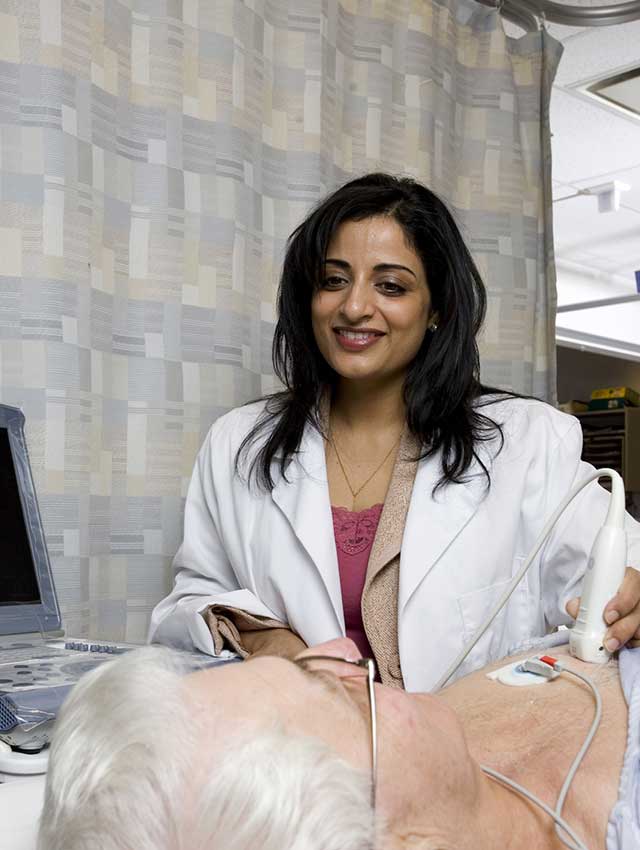
SOCIAL LIFE
There is a fantastic rapport between the fellows and staff cardiologists at UBC. In addition, there is a real sense of camaraderie when working with the nurses and support staff in both the CCU and other subspecialty departments. We also meet every Monday and Tuesday morning for teaching and on Thursdays for academic half day; this again allows fellows to feel connected despite working at two or more hospitals. With this working environment as a base, there are many opportunities throughout the year outside the regular curriculum to meet and socialize. There is an annual program directors’ BBQ, Christmas Lunch, End of the Year Lunch and multiple team building events throughout the year, including a fitness challenge between residents and staff (directed by a dedicated social coordinator within the resident group).
2020-2021 CaRMS information:
UBC will interview candidates via virtual meetings from 8:00 Am- 5:00 PM PST on
Monday, September 28, 2020
Tuesday, September 29, 2020
Friday, October 2, 2020
UBC will hold a virtual information session on Wednesday, September 23, 2020 at 5:30 PM PST. All applicants are invited to attend this session. Please contact the program administrator to request connection information.
Notification/Invitation: Program will only contact those candidates selected for an interview.
Details regarding the interview process:
Applicants will be notified by email if they have been selected for an interview, within one week of the File Review date. Applicants will be given a time for their schedule interview. A revision to the schedule can be considered. A confirmed applicant will receive via email their virtual meeting details. All interviews are conducted by the Selection Committee.
HELPFUL LINKS
CONTACT
Annamaria Oliveri
Senior Program Assistant
UBC Postgraduate Cardiology Program
Gordon & Leslie Diamond Health Care Centre
Vancouver General Hospital
2775 Laurel Street, Rm 9174 9th Floor Cardiology
Vancouver, BC V5Z 1M9
Tel: 604-875-5302
Fax: 604-875-5761
E-mail: aoliveri@
